10 Best Prebiotic Foods for Weight Loss, According to Dietitians

As scientists learn more about the gut microbiome, the research increasingly suggests that having high levels of “good” gut bacteria can have a major impact on your broader health. Prebiotics and probiotics, which you can get from dietary sources or supplements, can help you do just that. It has long been understood that gut-boosting bacteria can help regulate digestion, improve the immune system, and more. Now, new research indicates that prebiotic foods could also have a positive effect on weight loss.
“The relationship between gut microbiota and obesity has recently been an important subject for research as the gut microbiota is thought to affect body homeostasis, including body weight and composition,” explains a 2024 study published in the journal Nature.
The researchers behind that study note that the gut microbiota influences “fat storage, insulin resistance, and weight gain” by controlling “energy balance, hunger, and satiety via gut peptide signaling, through hormonal effects in the blood, or by directly regulating the nervous system.”
Prebiotics differ from probiotics in that they stay in the gut and serve as food for your gut’s microflora.
“While there are no ‘perfect prebiotic foods’ that result in absolute weight loss alone, there are foods that increase our fiber and plant-based protein intake, which help with satiation and, thereby, lead to reduced overall intake,” says Janese Laster, MD, a gastroenterologist and weight loss specialist working with My Fitness Pal. “Prebiotics also positively influence the microbiome, which support diversity and results in improved energy utilization, helping with weight loss and maintenance.”
Ready to revamp your diet for better health and a whittled-down waistline? Read on to learn the 10 best prebiotic foods for weight loss, according to dietitians and nutritionists.
RELATED: Should You Use Meal-Replacement Shakes for Weight Loss? Doctors Weigh In.
1
Garlic and onions
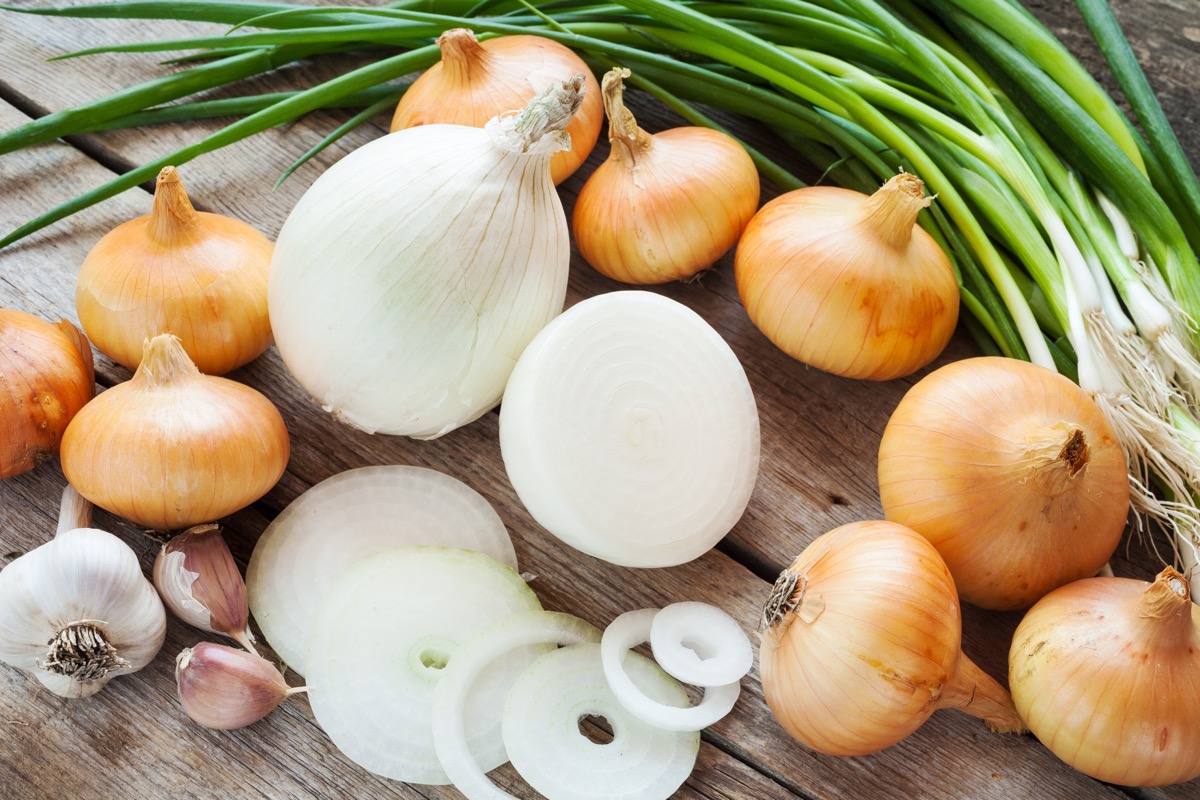
Garlic and onions are easy to add to your diet because you can use them to flavor a wide range of cuisines.
“Garlic contains a prebiotic compound called fructooligosaccharides, which help with weight loss efforts by reducing inflammation and supporting metabolic health,” Michelle Routhenstein, MS, RD, CDCES, CDN, a preventive cardiology dietitian at Entirely Nourished, tells Best Life.
Meanwhile, onions are rich in the prebiotic Inulin, which stays in the gut and helps to stimulate the growth of the bacteria bifidobacteria and lactobacillus.
Not only are garlic and onions filled with prebiotics, but they have also been shown to reduce body weight, body mass index (BMI), waist circumference, blood pressure, and even triglyceride levels,” says Shelley Balls, MDA, RDN, LDN, a registered dietitian and nutritionist for Consumer Health Digest.
“Garlic and onions can also help prevent certain types of cancer, as well as other chronic diseases,” she adds.
RELATED: 20 Ways to Eat Your Favorite Foods and Still Lose Weight.
2
Asparagus
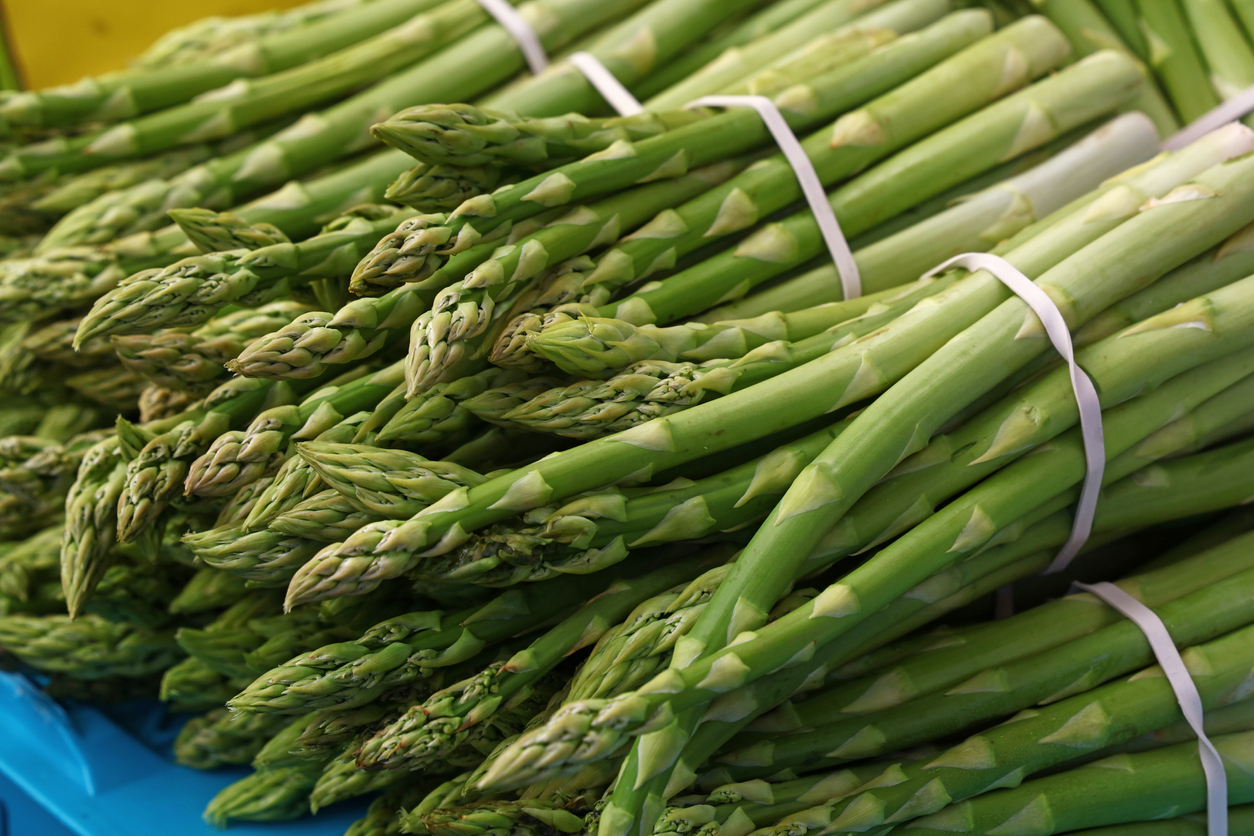
The experts agree that adding more asparagus to your diet can aid in weight loss thanks to its prebiotic properties.
Destini Moody, RDN, CSSD, LD, a registered dietitian at Garage Gym Reviews, notes that this particular vegetable is full of Inulin. “This fiber is starchy and cannot be broken down or absorbed in the gut, which is good news for our microbiome. While it sits in the GI tract, it acts as food for the beneficial bacteria living there,” she tells Best Life.
“One cup of raw asparagus contains only 27 calories and provides three grams of dietary fiber, which can help you feel full between meals,” adds Balls. “That dietary fiber is also what helps promote healthy gut bacteria. Asparagus is packed with antioxidants including vitamins A, C, and E, that can help protect cells from damage and inflammation.”
3
Beans
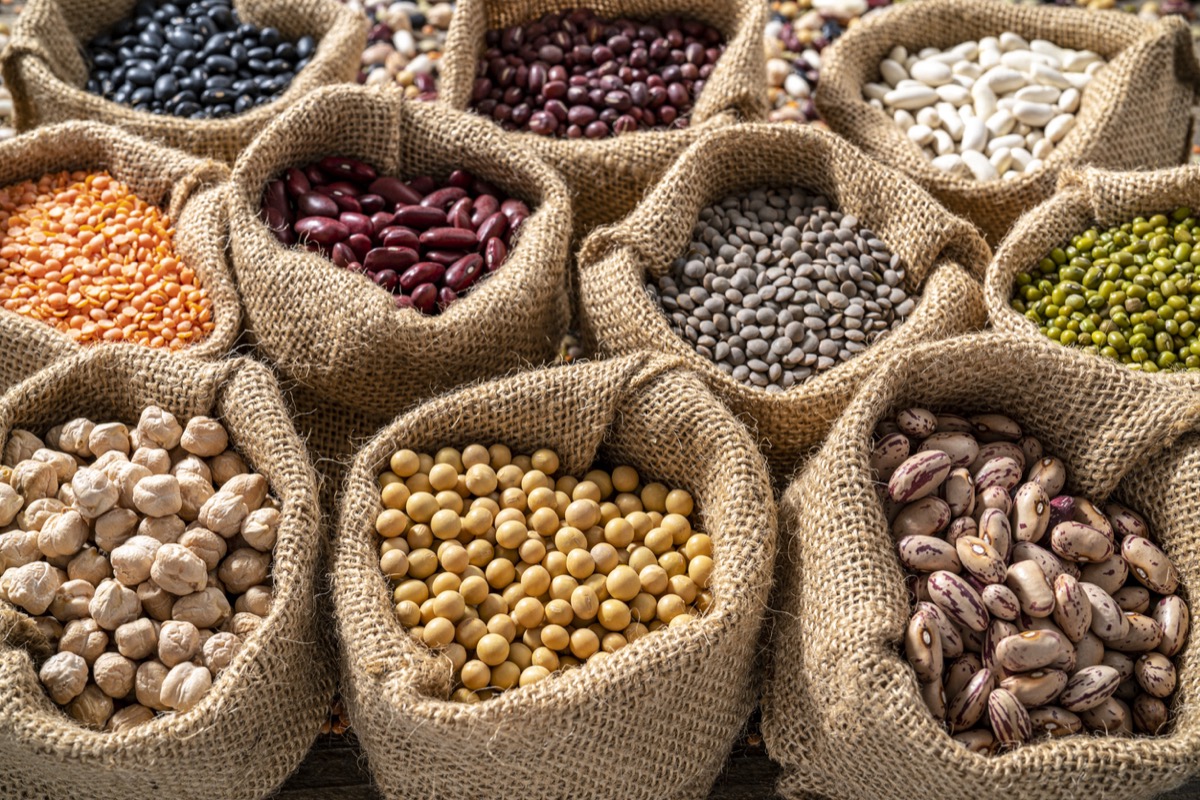
Beans are another prebiotic food to add to your diet if your ultimate aim is weight loss.
“Beans are high in protein and fiber and have a low glycemic index, which helps keep you full and maintain a healthy blood sugar level to aid in your weight loss efforts,” says Balls. “Bean consumption has been shown to decrease body fat levels and decrease abdominal obesity compared to non-bean consumers.”
“Beans are not only a great source of dietary fiber, but they also provide polyphenols. Polyphenols are important in the diet because they are an antioxidant, protecting the body’s tissues against oxidative stress and certain types of cancers, coronary heart disease and inflammation,” she explains.
Moody notes that with a wide variety to choose from, you should have no trouble integrating them into your diet: “Nearly all beans in the legume family are rich in prebiotics and these include chickpeas, black beans, edamame, and lentils.”
4
Oats
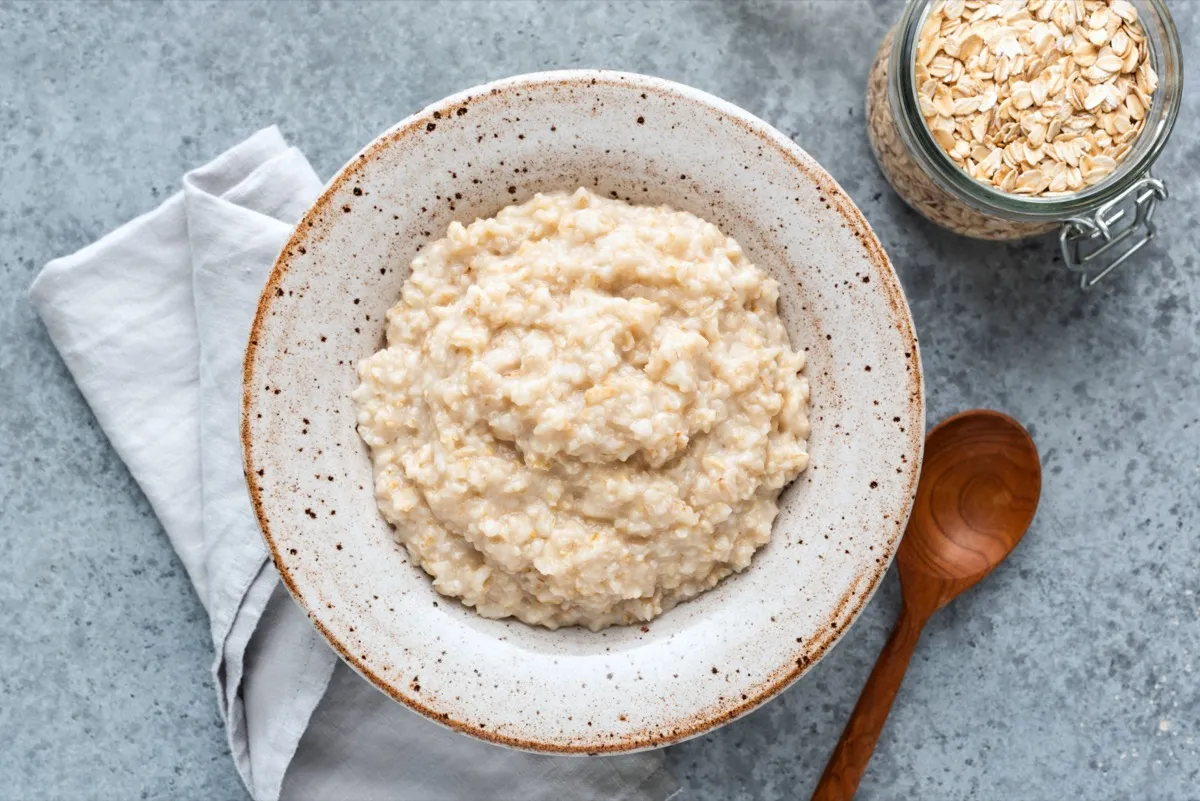
Whole grain oats contain phytochemicals that act as prebiotics in your GI tract. But the weight loss and broader health benefits don’t stop there.
“Oats are filled with both insoluble and soluble fiber which helps not only promote gut health, but can help you fill full for longer, provide antioxidants, help decrease blood cholesterol levels, and help keep your bowel movements regular,” says Balls. “Oats are considered a complex carbohydrate or whole grain which is an important part of a well-balanced diet for weight loss and overall health.”
5
Flaxseeds
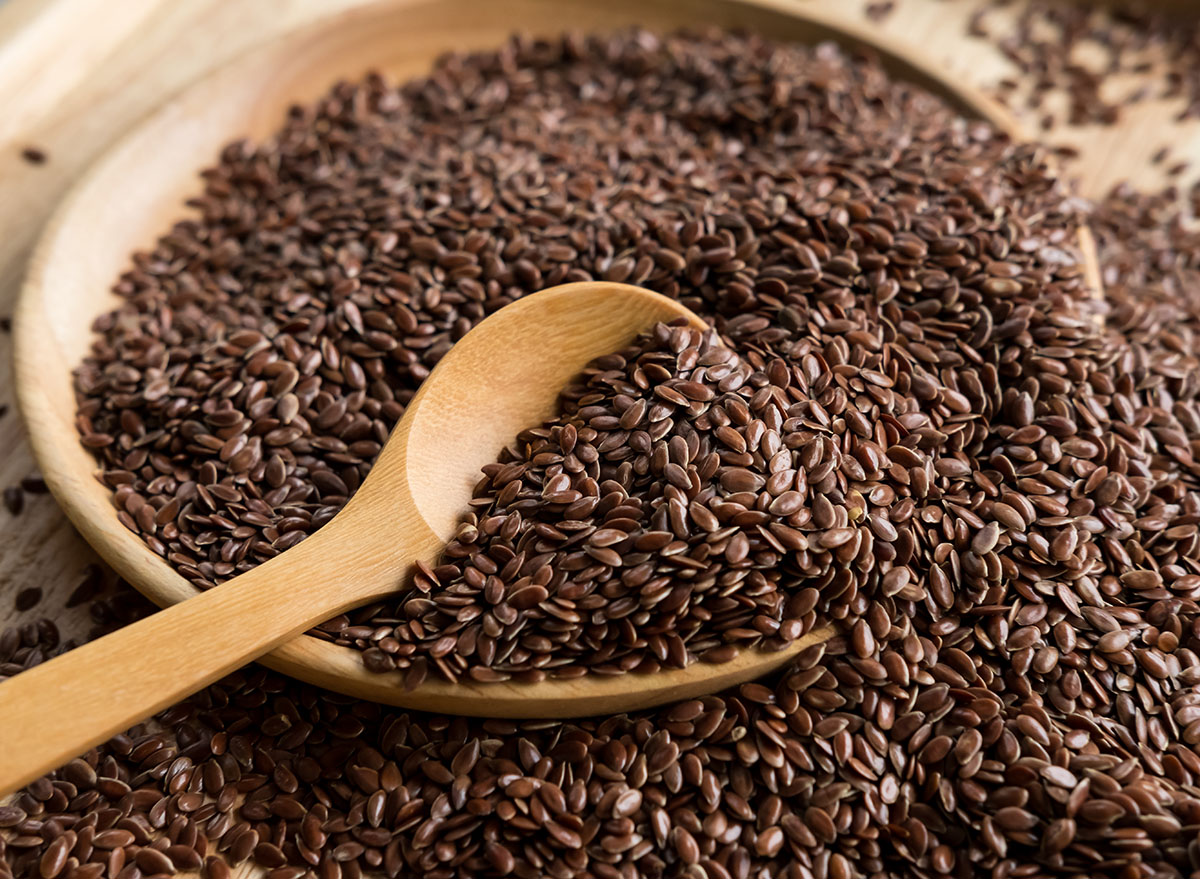
Flaxseeds are easy to add to your diet: Simply grind them up and add them to your smoothie, yogurt, oatmeal, or cereal.
“Flaxseeds are a wonderful option when it comes to prebiotics because they are so versatile and packed with nutrients,” says Balls. “Studies have shown that a higher intake of dietary fiber is beneficial for the prevention of obesity in both men and women.”
The dietitian notes that flaxseeds have been shown to have preventive and therapeutic benefits on the gastrointestinal system, including relief from constipation, irritable bowel syndrome, and diverticular disease.
“The dietary fiber in flaxseeds plays an important role in lowering blood sugar levels, lowers cholesterol levels leading to a reduced risk for cardiovascular diseases,” she notes.
6
Seaweed

Seaweed contains polysaccharides that can increase the production of short-chain fatty acids (SCFA) in the gut. These are known to “improve diseases related to obesity,” according to a 2022 study published in the journal Biology.
“Seaweed contains a good source of dietary fiber, which can help with weight loss, and is low in calories to help you feel full on fewer calories,” Balls notes. “Seaweed is also a good source of omega-3 fatty acids, essential amino acids, and vitamins A, B, C, and E. These nutrients can provide anti-inflammatory properties aiding in weight loss and decreasing the risk for chronic diseases.”
7
Unripe bananas
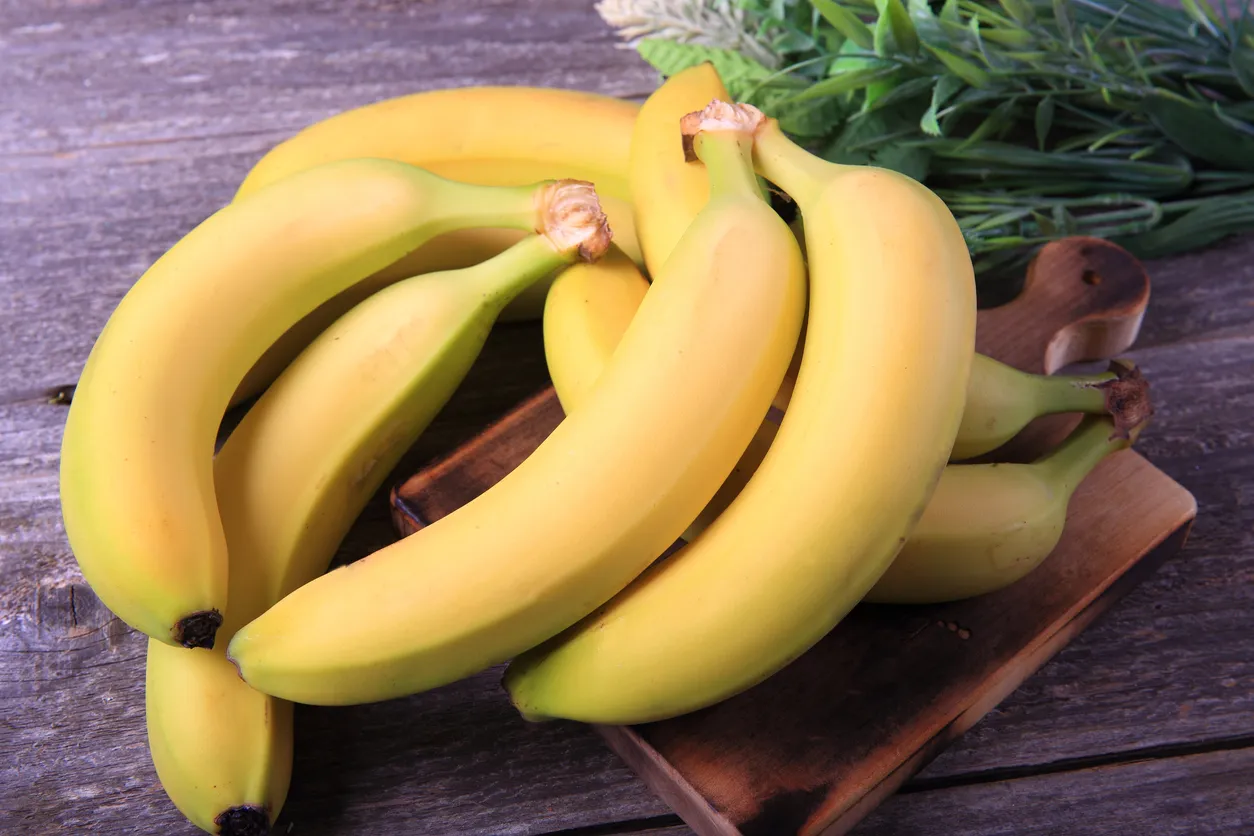
Routhenstein also recommends eating unripened bananas as a form of prebiotic. That’s because before they ripen, bananas contain more of a prebiotic fiber called resistant starch, which fights against digestion in the small intestines and ferments in the large intestine.
“Unripe bananas—the green ones!—are high in resistant starch, which may help with weight loss efforts by bypassing digestion in the small intestine and regulating appetite,” she explains.
8
Avocados
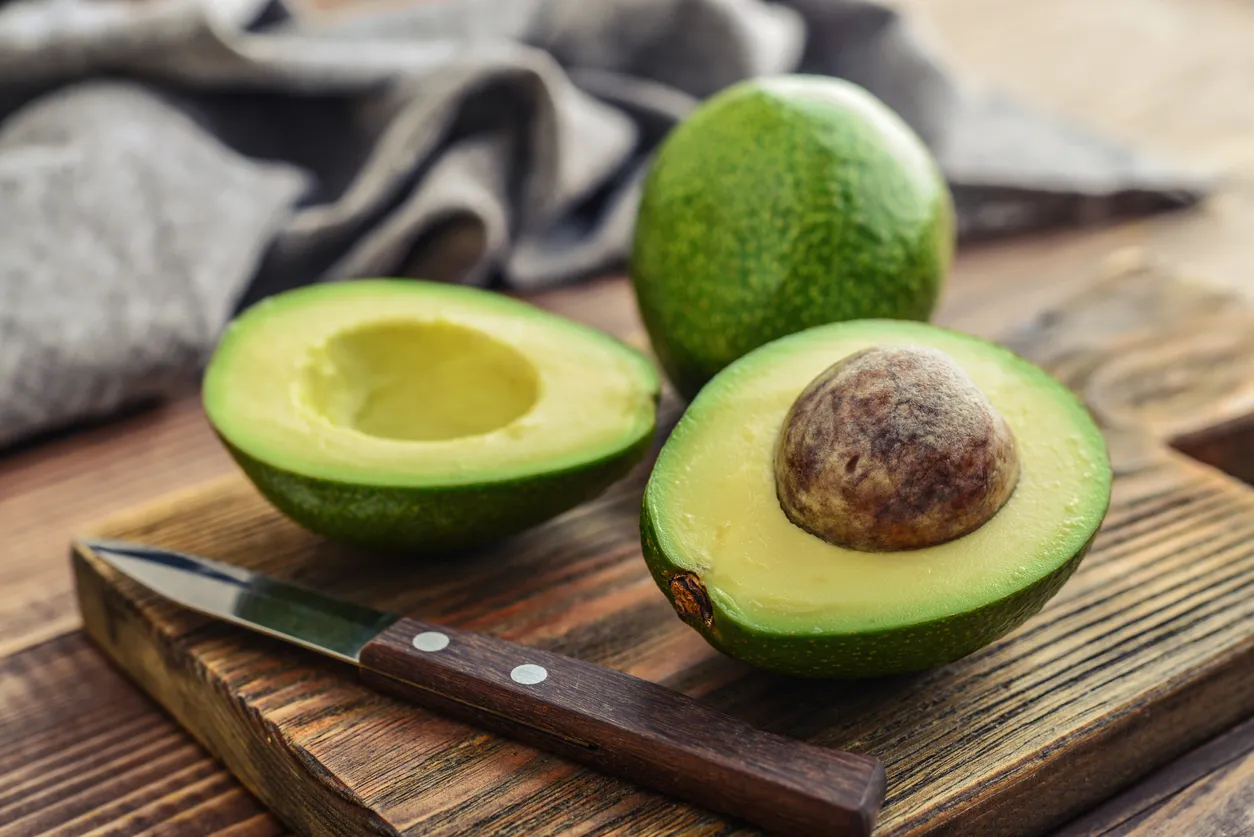
Avocados are full of the soluble fiber Pectin, which has prebiotic properties.
“In moderation, avocados provide essential healthy fats that can help keep you full and satisfied while cutting calories for weight loss,” says Balls. “Avocados are packed with carotenoids, monounsaturated fats, potassium, and dietary fiber that have been associated with a reduced risk of chronic diseases. Avocado’s potassium and lutein content may help promote normal blood pressure and help to control inflammation.”
9
Greek yogurt
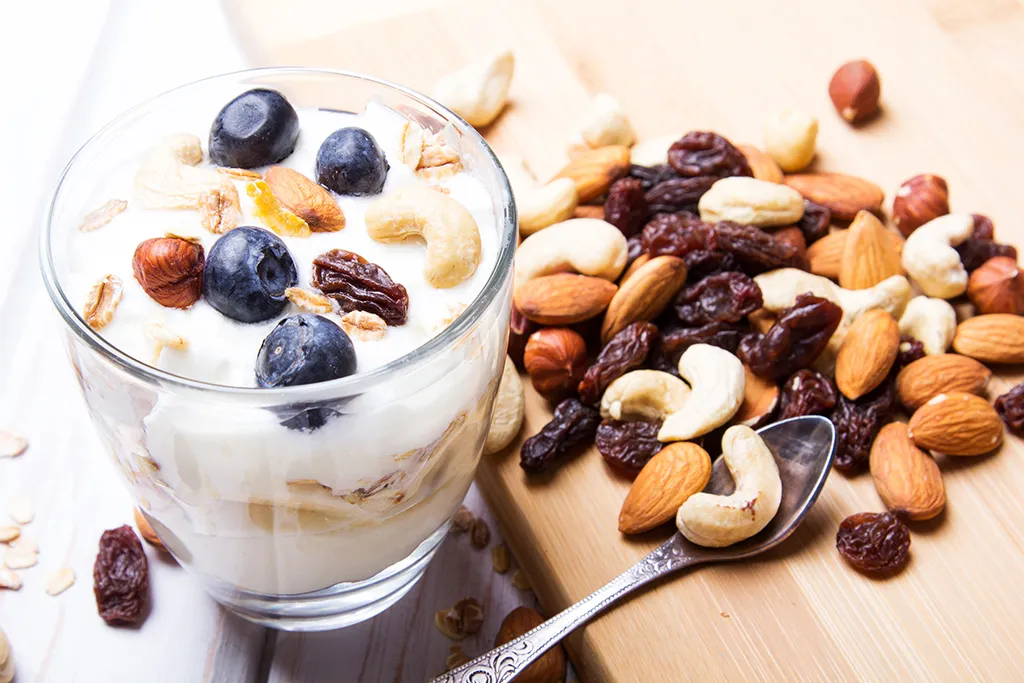
Yogurt contains live cultures, which make it an easy vehicle for probiotics and prebiotics. However, that’s just one way that eating Greek yogurt may aid in weight loss.
“Greek yogurt is a protein-rich food that should be included in a balanced eating pattern for both the gut health benefits and numerous other health benefits. Protein can help people feel fuller for longer, helping to reduce total calories consumed and aiding in weight loss efforts. Yogurt consumption is associated with lower body mass index, lower body weight, smaller waist circumference, and lower body fat in epidemiological studies,” Balls explains.
10
Almonds
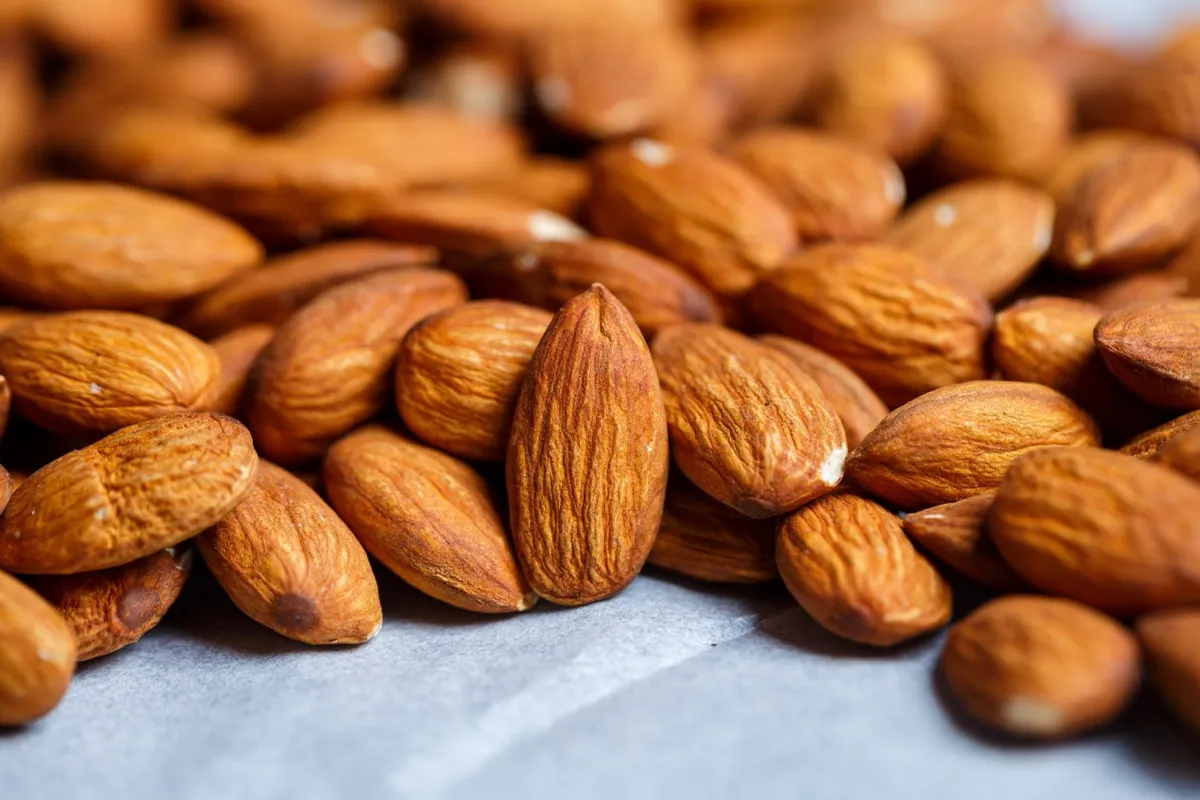
Finally, almonds and other nuts provide a convenient prebiotic option. They’re also packed with beneficial nutrients that go beyond the gut microbiome.
“The dietary fiber found in almonds provides a feeling of fullness for longer and is also a great source of lean protein,” says Balls. “One randomized controlled trial found that individuals who consumed almonds had a significant reduction in weight, body mass index (BMI), waist circumference, waist to hip circumference ratio, total cholesterol, triglyceride, fasting blood sugar, diastolic blood pressure, as well as improved high-density lipoprotein (HDL) cholesterol-which is the good kind.”
Best Life offers the most up-to-date information from top experts, new research, and health agencies, but our content is not meant to be a substitute for professional guidance. If you have health questions or concerns, always consult your healthcare provider directly.
- Source: Nature: Effect of weight loss program using prebiotics and probiotics on body composition, physique, and metabolic products
- Source: Cancer Prevention Research: Garlic and onions: Their cancer prevention properties
- Source: Biology: Diet-Related Changes of Short-Chain Fatty Acids in Blood and Feces in Obesity and Metabolic Syndrome
- Source: Journal of Research in Medical Sciences: The effect of almonds on anthropometric measurements and lipid profile in overweight and obese females in a weight reduction program